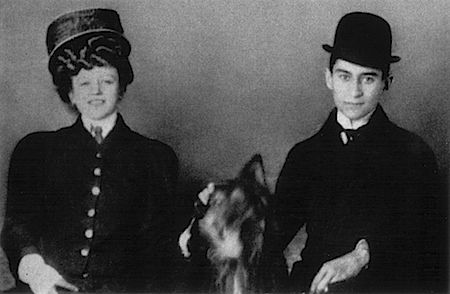
Even if one never read the work of Franz Kafka, it’s possible to have encountered the expression “Kafkaesque.” The term is used to describe a situation where the individual is sane, but he or she struggles against an illogical or insane situation. Fanciers might snicker to themselves that this could describe one or two judging assignments, or that time they showed under a certain judge, but we digress.
Franz Kafka died of tuberculosis in 1924, and only after his death did he become famous. His books were most likely on a watch list by the Nazi regime not just because he was a Jew, but also because his writing style was somewhat surrealistic, and that form of literature was considered degenerate by Nazis. It didn’t help that some of his stories criticized totalitarian governments.
The Czech/German author wrote a wonderful short story entitled, “Investigations of a Dog” that we think most dog owners would enjoy. The story is about a dog trying to do philosophy, and just when the philosopher-dog is on the point of a breakthrough, another dog walks by with a bone in its mouth and POOF, the idea is immediately forgotten. It was the 20th century version of “Squirrel!”
Kafka has two quotes from that short story that we think are especially noteworthy, and one likely answers the other.
“All knowledge, the totality of all questions and all answers, is contained in the dog.”
Elsewhere, he writes:
“Every dog has, like me, the impulse to question, and I have, like every dog, the impulse not to answer.”
Show of hands: Who has had a dog like that?
